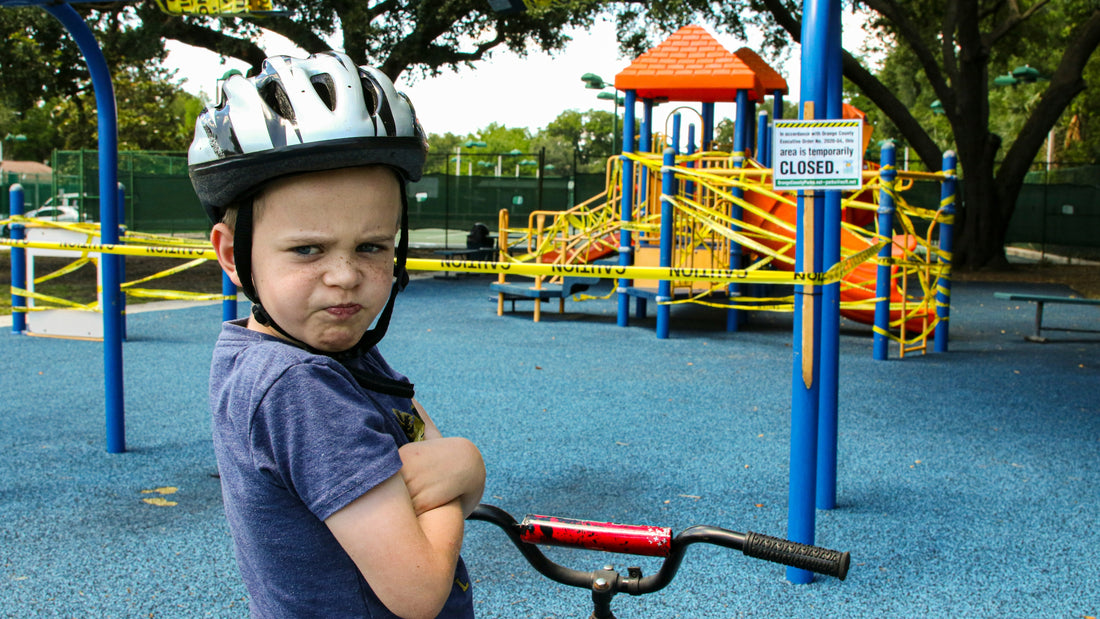Jealousy is a very normal human emotion that everyone experiences, though varying degrees and frequency. Some kids have temporary bouts of envy that pass quickly and don't interfere with their friendships or relationships with others. Their feelings may be just a normal reaction and are not a disproportionate response to the triggering event. But for some, this feeling can take a stronghold in the center of a child's emotional wellbeing. When kids frequently turn green with envy, it may be time to step and follow these tips to help them keep their jealous feelings in check.

Tips For Children Struggling With Envy
Children may temporarily pout or take a small break from interacting with the person who is the source of envy. In these instances, this emotion is not a source of concern as it does not interfere with daily living. It is simply one of many feelings, good and bad, that children learn to cope with as they develop into emotionally mature human beings. Sometimes, however, kids struggle with envious feelings that they cannot seem to control. Their strong feelings can manifest into ugly behavior that ruins friendships. Reading children's books about envy can help kids think about what triggers this feeling and help them find ways to channel their negative emotion into positive behavior. Consider including stories about feeling left out that provide invaluable guidance for kids who are envious of others who make friends easily. Here are some other tips to help kids work through jealousy, especially when it occurs too often and lingers entirely too long.

(1) Acknowledge and validate your child's jealous feelings.
Every human emotional experience is unique. All children are not wired the same way and react in drastically different ways to identical situations. There is no right or wrong way to feel. For these reasons, it's important not to dismiss a child's jealous reaction or minimize the way they feel. This is a critical first step in helping a child who struggles with jealousy.
(2) Identify all the events that trigger jealous episodes in a child.
By making a list, the root cause of jealousy will start to become apparent. For some kids, jealousy may be strictly related to material items, like when a friend or sibling gets a new toy. For others, envious feelings may be more related to attention others receive from friends, teachers, or family members. Sometimes jealousy is triggered by kids who perform better in school or on the sports field. Understanding what makes a particular child jealous is extremely important so that the right guidance to help them cope is provided. Also, pay close attention to the amount of time a child spends on social media where they are inundated with a steady stream of false and unrealistic depictions of others.
(3) Do not try to squash jealous feelings through superficial words.
There will always be a kid who is smarter, more athletic, a better musician, or talented in way that your child is not. It is very natural for kids to feel jealous when in the presence of others who outperform them on any level. And that is perfectly okay. Parents can acknowledge the gifts of others while also providing their own kids with a boost of self-esteem. It's never a good idea to tell your child that they are actually the better student, athlete, etc. when that very well is not the case. A better strategy is to help a child become the best version of themselves, with less comparison to others. That is the real ticket to happiness and self-satisfaction.

(4) It's never a good idea to buy gifts and toys in response to a child's jealous feelings.
The ultimate goal is to teach a child how to cope with jealousy, not to put a band-aid on the uncomfortable emotion through material purchases. For example, buying a child a new toy every time to keep up with a friend is a losing proposition on so many levels. Kids will never learn to be satisfied with what they have and will associate happiness by comparing their own material possessions to others.
(5) Young children are frequently jealous when parents are focusing time and energy on a sibling.
Toddlers may react poorly by throwing a temper tantrum, whining, crying, or complaining in response to sibling rivalry. It can be tempting to try and assuage this behavior by giving in to the toddler's demands. Unfortunately, this can lead to a cycle that is difficult to break. Do take a few moments to reflect on whether some changes at home have indeed disrupted the time and attention normally devoted to the jealous little one. If that's the case, make some minor adjustments whenever possible to read stories, snuggle, or spend some quality time together. But try not to shower a child with attention in response to a jealous reaction, which will only reinforce the problematic tendencies.
(6) Be intentional about frequently acknowledging all of the good things in a child's life.
Simple things that kids take for granted, like basic food and shelter, should be recognized periodically. Good health and strong bodies are also gifts that should be discussed. Nice teachers, best friends, and loving family members should be part of the conversation, too. It's also okay to appreciate video games, televisions, toys, and other forms of entertainment at home. And then, most importantly, talk about all the wonderful traits of a child, such as a kind heart, a good thinker, a strong math student, a creative mind, a fast runner, and the many other wonderful attributes. When talking about these characteristics, they should never be discussed in comparison to peers if your goal is to curb jealousy. A sense of happiness needs to come from within, not as a result of being better than others.


